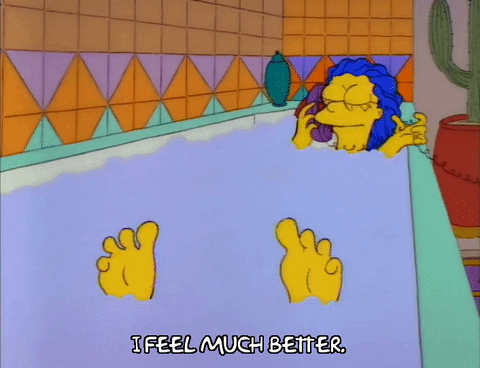Remember the time you were in school and were afraid of failing a science test? During those uncertain times, your mum would always tell you that if you just believe in yourself no force in the world could stop you from passing your exams!
Now that we have all grown a bit older, we still tend to doubt our abilities. 😔
Self-efficacy can play a crucial role in determining how confident you feel about yourself. So what is self-efficacy and why is it important? If you want to know the answers to these, this article is just for you! 😁
What is Self-Efficacy?
Self-efficacy is an interesting psychological concept. It is defined as an individual’s confidence in their abilities to be successful at any task they take up.
It is a measure of how much a person believes in themselves and how confident they are in overcoming any roadblocks they face in their personal and professional life.

People often tend to confuse self-efficacy with self-confidence, self-motivation, or even self-regulation. However, self-efficacy is an umbrella term that includes all these psychological concepts.
Maybe you already know your long-term life goals, the positive changes we’d like to bring in your life, and your professional goals. Great stuff! However, accomplishing these goals is a whole other kettle of fish.
Having a high level of self-efficacy can help you turn your thoughts into action and accomplish your life goals right away.
What is the Importance of Self-Efficacy in Your Life?
We all have our fears of obstacles and failing in life, whether it’s personal objectives or professionally. That said, setting goals and taking action to overcome these obstacles is the only way to move forward in life. 🤷♀️
Sometimes a goal can seem too intimidating to tackle, even when you feel like you’ve broken it down to the smallest step. This is where your self-efficacy comes into the picture.
It determines how you feel about yourself, how you behave when dealing with an obstacle, and what actions you take to overcome it. Here’s how a strong sense of self-efficacy can help you in life:
👉It helps you not get overwhelmed by your thoughts and feelings by keeping them under control in difficult situations.
👉It helps you to focus better on the academic front, achieve better grades and set higher career goals for yourself. If you have a strong sense of self-efficacy, you can feel more confident about achieving your life goals.
👉When you face any obstacles or failures, self-efficacy empowers you to increase your efforts and get a grip over your situation.
👉Self-efficacy can be a key factor in developing self-confidence and leading a stress-free life.

How to Gauge Your Self-Efficacy?
In order to gauge your self-efficacy, you can take a quick survey and ask yourself the following questions:
🤔Are you willing to work hard towards achieving your life goals?
🤔Do you think you can overcome any roadblocks or obstacles that might stop you from achieving your goals?
🤔Do you think you can bounce back stronger after failing at a task?
🤔Do you think that you can keep trying to achieve your goals in the face of adversity?
🤔Do you think you can keep your emotions under control when faced with a challenging situation?
🤔What do you tend to focus on – your failures or your achievements?
🤔Do you believe that you are competent enough to achieve everything you want in life?
If you gave a positive response to the above questions, you have a strong sense of self-efficacy. If not, don’t get disheartened. There are several ways to improve your self-efficacy.
What are the Negative Effects of Low Self-Efficacy?
According to several psychologists across the globe, self-efficacy is a key determinant of your overall health and well-being. People who believe in themselves have a stronger desire to achieve their life goals, a stronger sense of their interests, and the ability to bounce back quickly from setbacks in life.
They view every roadblock as a challenge.💪
On the other hand, a person who isn’t confident about themselves tends to steer clear of any challenges that come their way. They focus on their failures rather than their achievements.
Let’s take a look at how a low level of self-efficacy can affect your mental health and overall well-being.
- People who don’t feel confident about their abilities tend to have a lower success rate in achieving their life goals and realizing their ambitions. It causes one to feel anxious and lonely; it might even lead to depression in extreme cases. 😦
- Low self-efficacy can also lead to indecisiveness and a lower drive. 😟
- It can significantly hamper your ability to perform everyday tasks and concentrate on the task at hand. 😞
- People who spiral into depression due to low self-efficacy or are unable to deal with their failures often tend to resort to alcohol and drug abuse as an escape. 😫

How Can You Develop Self-Efficacy?
If you are determined to bring a positive change in your life by improving your sense of self-efficacy, you can do so by implementing these three strategies. Take a look! 👇
1. Bid Goodbye to Your Comfort Zone
The best thing that you can do for your personal development is to get out of your comfort zone.
Getting out of your comfort zone will allow you to embrace the opportunities life has in store for you.
While it might seem like a daunting task at first, just think about everything you can achieve in your life if you just find the courage to take the first step.
To get out of your comfort zone, you can try to take a demo class of a skill that you always wanted to develop but were unable to. You could go out with your friends and try to meet somebody new. You can even try to go to social support groups and listen to motivational public speakers.
But I personally recommend this course right here 👇😉

2. Set Reasonable Goals
Don’t try to overwhelm yourself by setting unrealistic personal and professional goals. Inability to achieve such goals will only make you feel like a failure and lower your self-esteem. Instead, try to set small and realistic goals that you can manage to achieve easily by believing in yourself.
RELATED: S.M.A.R.T Goal setting worksheet
RELATED: How to set goals and achieve them mini-course
3. Change the Way You See Your Failures
It’s a known fact that failures and obstacles are a part of everyone’s life. There’s no way you can avoid them. Instead of focusing on just your failures, try to look at the bigger picture. Think of your failures constructively and change the way you implement your actions.
4. Pay Heed to Positive Feedback
Paying heed to positive feedback about yourself from your friends and family can help you develop a strong sense of self-efficacy. Also, avoid paying attention to any negative feedback as well. (very much different than constructive feedback) 👈
Listening to something positive about yourself from the people you love and respect can be very encouraging for your soul and make you feel more motivated about achieving your goals.
5. Celebrate Your Achievements
The most effective way to inculcate a strong sense of self-efficacy in yourself is by celebrating your little achievements. Patting yourself on the shoulder for achieving both major and minor milestones in your life is a must.
Failures might undermine your self-efficacy but the feelings of actively trying to achieve your goals is a step towards enhancing your self-efficacy. 😄
The Bottom Line
Self-efficacy will generate adrenaline in you, which will not only push you to work hard and achieve your goals but it will also have a positive impact on your overall well-being. Everyone’s life is filled to the brim with challenges and obstacles. However, only those who are self-efficacious can see what lies beyond such obstacles.
You got this 💪
Pin this post for a reminder 📌 👇

Related Blogs
The power of setting goals and objectives
+ show Comments
- Hide Comments
add a comment